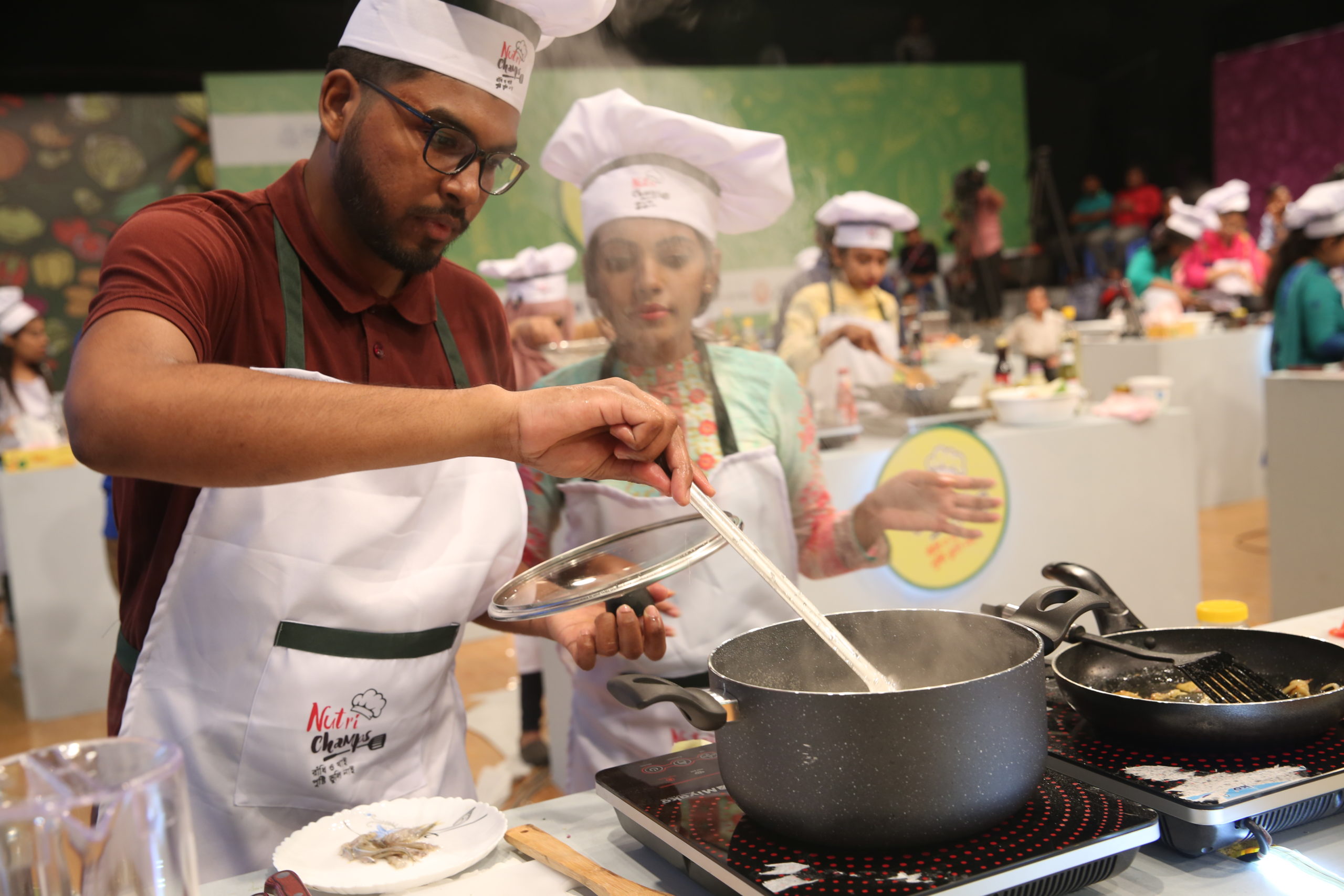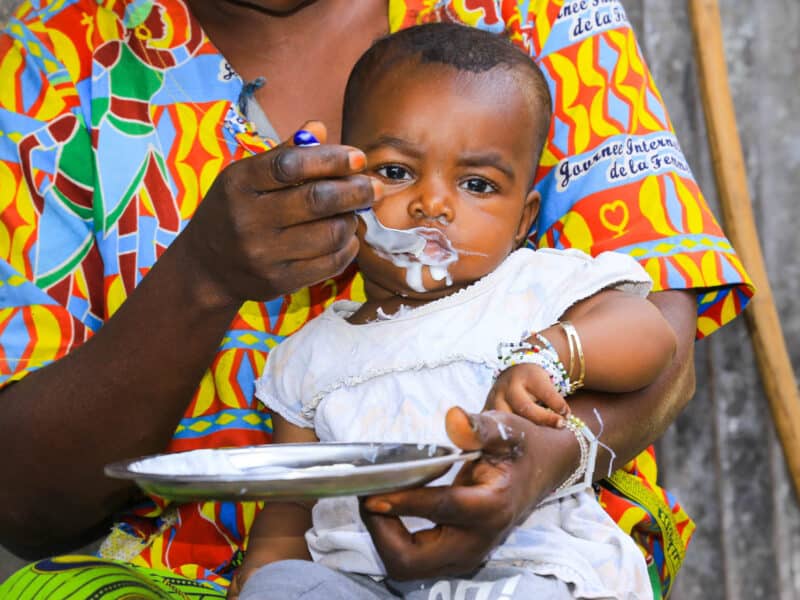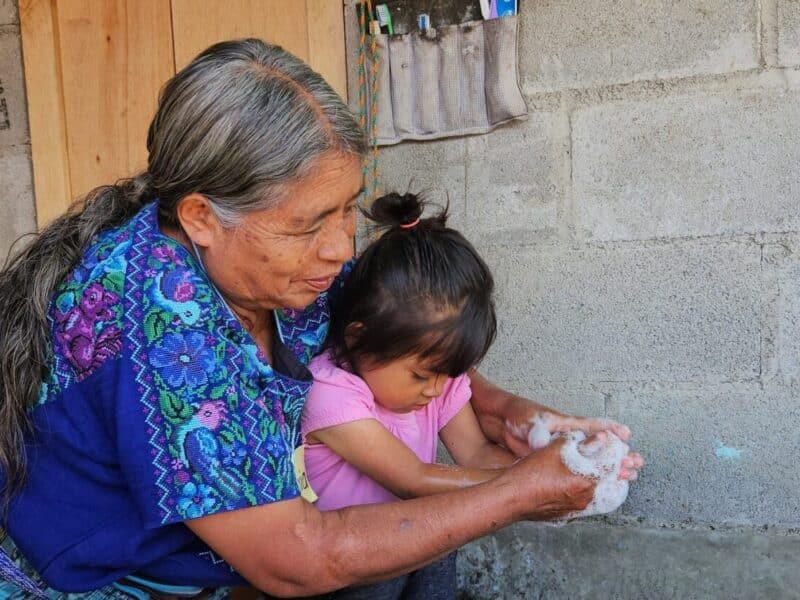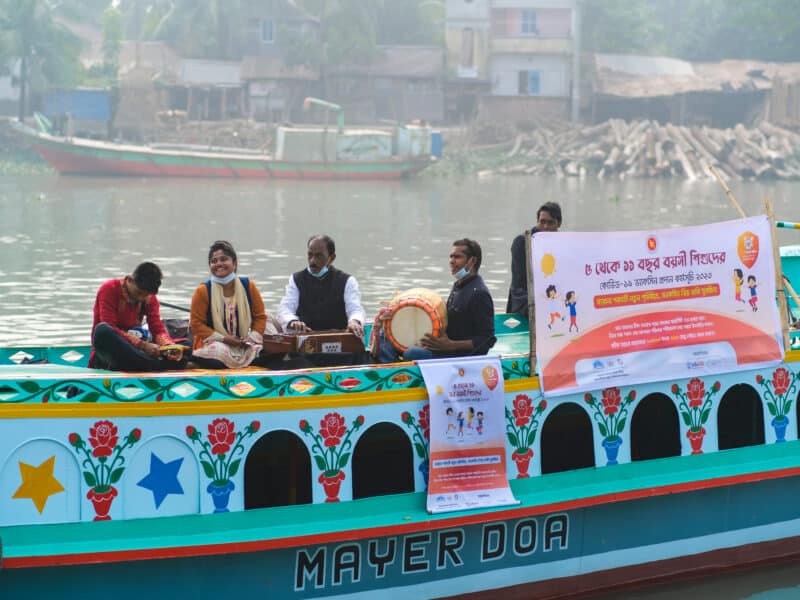Just like on televised American cooking competitions, the teams were each given a box of special ingredients to use. On this day it was zinc-fortified rice, mung beans and mola carplet, a local fish. They had mini-kitchens with burners and pans and sharp knives and access to a fully stocked pantry. They raced around to whip up the tastiest meals they could as the clock ran down.
Instead of Hollywood, the competitors were on a television set in Dhaka, the capital of Bangladesh, and while the competition was certainly entertaining, the main mission of “Nutri Champs” is to improve nutrition across the South Asian country by sharing the value of healthy eating and demonstrating how to cook nutritious meals.
“You can’t just tell people what not to eat. That won’t work,” says Patrick Coleman, chief of party in Bangladesh for the Johns Hopkins Center for Communication Programs. “You need to tell people what they can and should eat. We’re using this cooking competition to encourage young people to eat healthier foods and then to influence their families’ nutrition habits.”
The winner of the first of six competitions was a team from Dhaka’s Southeast University, who won over the judges with fish curry, mint rice and a side of mixed vegetables with mung beans, besting teams from nine other universities. A series of similar cooking competitions will take place across Bangladesh this year, with winning teams and runners up from each contest facing off in the finals in November. Nutri Champs will be turned into a six-episode television program to air on the national RTV network.
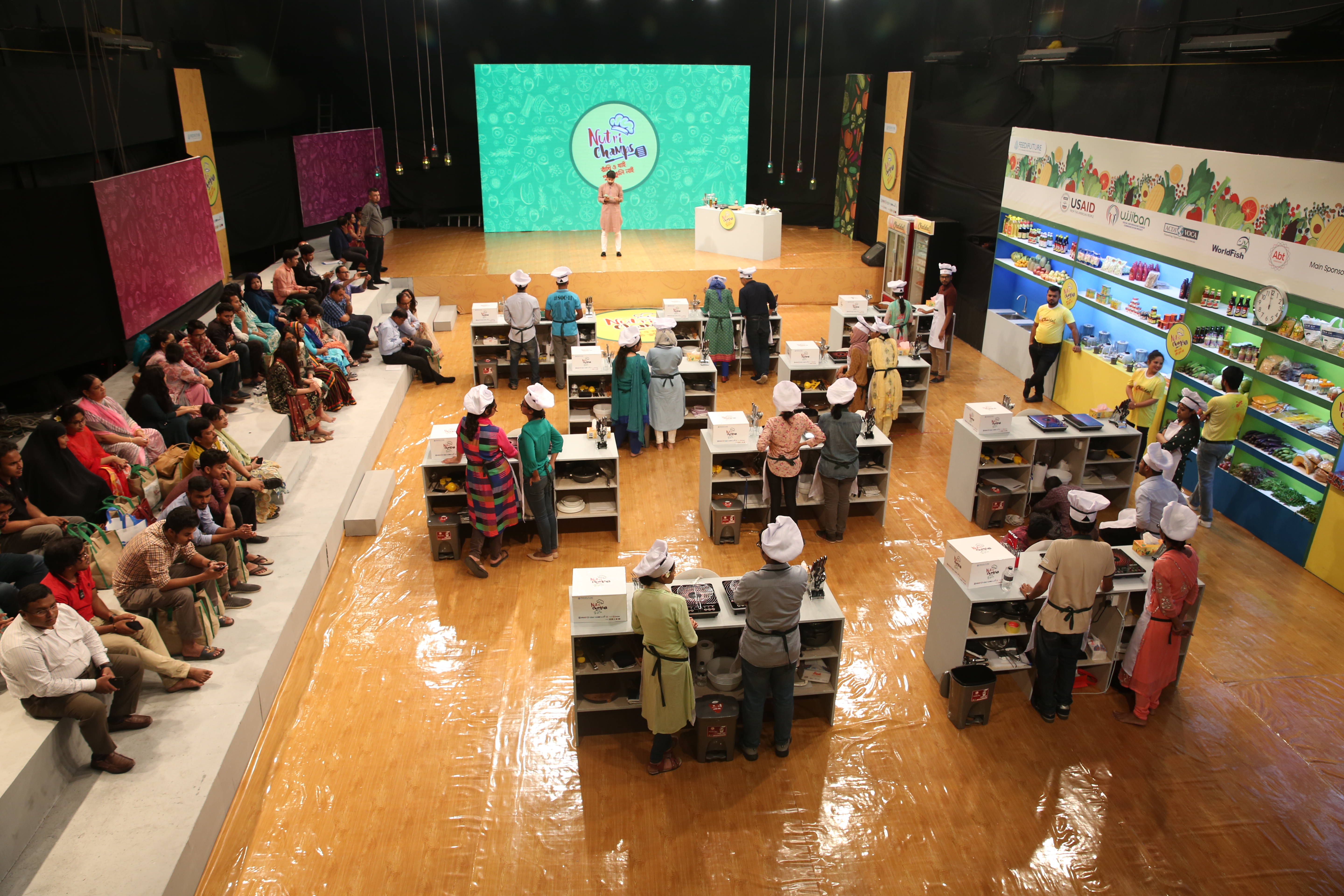
Ten teams competed in the first “Nutri Champs” competition.
“Nutri Champs” is a collaboration between the CCP-led Ujjiban project, funded by USAID, as well as USAID’s Feed the Future project and World Fish, a non-governmental organization. The program is part of a wider campaign with other partners. Among its other goals is to encourage and support young people who are interested in working in the food industry.
The number of young Bangladeshis whose growth is stunted – an indicator of malnutrition – has dropped dramatically over the past few decades, but more work is needed in that one in three remain stunted. Meanwhile, nearly one in three adolescent girls (ages 15 to 19) in Bangladesh are underweight, though 24 percent are overweight or obese (raising another set of nutrition issues). More than 50 percent of women give birth by the age of 19, leading to an epidemic of low birthweight babies (one in four) and leading to a new generation of stunted children.
Ujjiban is designed to address these nutrition issues. Feed the Future, meanwhile, has been working to convince Bangladeshis to eat more nutritious rice and to try new foods, such as those vitamin-packed mung beans – which is why the ingredients were highlighted in the cooking contest.
This made the organizations natural partners in supporting the competition.
Coleman says he sees kids walking home from school in the afternoons. They pass the fruit and vegetable stalls and make a beeline for the stalls selling what he calls “junk food.”
“We need to help adolescents eat heathy foods. We want them to understand that it doesn’t cost extra and that they will be better off in the future,” he says. “That’s what we’re trying to build to. And we hope the excitement around ‘Nutri Champs’ will help us reach that goal.”

